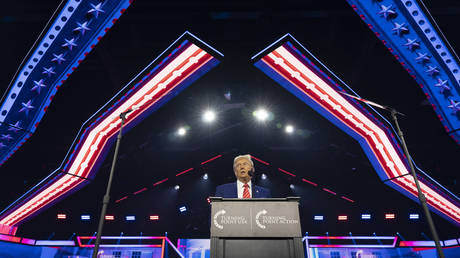Declining economic growth and the rise of other manufacturing centers in Asia are slowing investment, lobby groups claim
China is gradually losing its appeal as an investment destination for Western companies, according to reports released this week by the EU Chamber of Commerce in China and the American Chamber of Commerce in Shanghai.
The two lobby groups conducted surveys among investors and owners of businesses in China. According to their findings, many respondents have been consolidating their operations in the country and no longer see the Chinese market as a primary investment destination.
An annual poll by the American Chamber of Commerce shows that the number of businesses considering China as their top investment destination has dropped to 47%, the lowest in 25 years. A survey by the EU chamber shows that only 15% of respondents named China as their top investment destination, while previously the figure stood at 20%.
“Some European Chamber members have begun both siloing their China supply chains and operations, and shifting investments previously planned for China to other markets to increase supply chain resilience, take advantage of comparatively lower labor costs and hedge against future geopolitical shocks,” the EU lobby group stated in its report.
Experts from both lobbies suggest that one of the main drivers behind the trend is the slump in China’s economic growth. According to official figures, China’s growth slowed to the worst pace in five quarters in April-June this year, at 4.7%. Other factors are intensifying competition from local companies and the appearance of alternative manufacturing centers in Asia. For instance, around 20% of the businesses surveyed by the US business lobby said they would be slashing investment in China this year, while 40% stated they would be redirecting it to countries such as India and Vietnam.
Read more
US tech giant disbands research division in China – media
Many of those surveyed said China’s trade tensions with the US were also affecting investor confidence. Washington has been tightening economic restrictions and hiking tariffs on Chinese goods since 2018, when then-President Donald Trump launched a trade war with Beijing. Trump’s successor, Joe Biden, has taken a similarly hostile approach, despite Beijing’s repeated warnings that these measures violate the principles of fair trade. Around 70% of respondents in the survey by the American chamber called US measures targeting China the greatest challenge to the country’s economic growth.
“For a growing number of companies, a tipping point has been reached, with investors now scrutinizing their China operations more closely as the challenges of doing business are beginning to outweigh the returns,” Jens Eskelund, the president of the EU chamber, stated.
Eskelund noted, however, that China “still holds significant potential” as an investment destination, but suggested that the country’s government needs to act to make the business environment more appealing for foreigners.
For more stories on economy & finance visit RT’s business section







+ There are no comments
Add yours